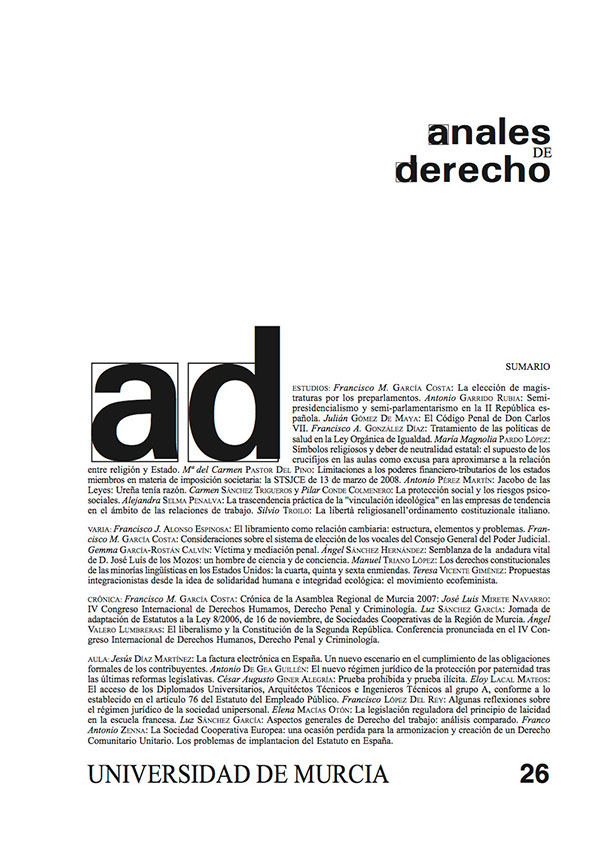El Código Penal de Don Carlos VII
Abstract
Among the so-called Carlist wars, the first, known as the Seven Years War, has been by far the most studied, undoubtedly for being the beginning of the conflicts, since the subsequent bellicose episodes are widely considered as mere renewed outbreaks of the first; nevertheless, the third and last one (although it appears sometimes as the second) presents certain unique characteristics and interesting perspectives in the field of History of the Law. During its course (1872- 1876) the civic organization of the area dominated by the Carlist arms reaches full development ‒up to an unprecedented level in light of previous campaigns‒, being articulated in the region Basque-Navarre a kind of state on a small scale, but with all the manifestations of sovereignty. In the absence of a Constitution that never passed the embrionic stage, perhaps the most noted social accomplishment of this Carlist state is summed up in the Penal Code, promulgated by the pretender to the throne Carlos VII in 1875 and transcript of the «official reformed edition» in 1850 from the two years precedent corpus, though again adapted, in this case to the traditionalist values: using the base provided by the Elizabethan text, with «small variations», the penal law is formalized for the subjects of the Carlist king.Downloads
Download data is not yet available.
Metrics
Views/Downloads
-
Abstract418
-
PDF (Español (España))577
Gómez de Maya, J. (2008). El Código Penal de Don Carlos VII. Annals of Law, 26, 85–139. Retrieved from https://revistas.um.es/analesderecho/article/view/113131
Estudios

This work is licensed under a Creative Commons Attribution-NonCommercial-NoDerivatives 4.0 International License.
The journal is object of publication in electronic and printed form. With the object of the first one, the author is supposed aware, being presumed that he lends his consent to such form of publication by the circumstance of presenting his manuscript. At the time of the printed edition the author will receive, of free form, 25 offprints of his contribution.

